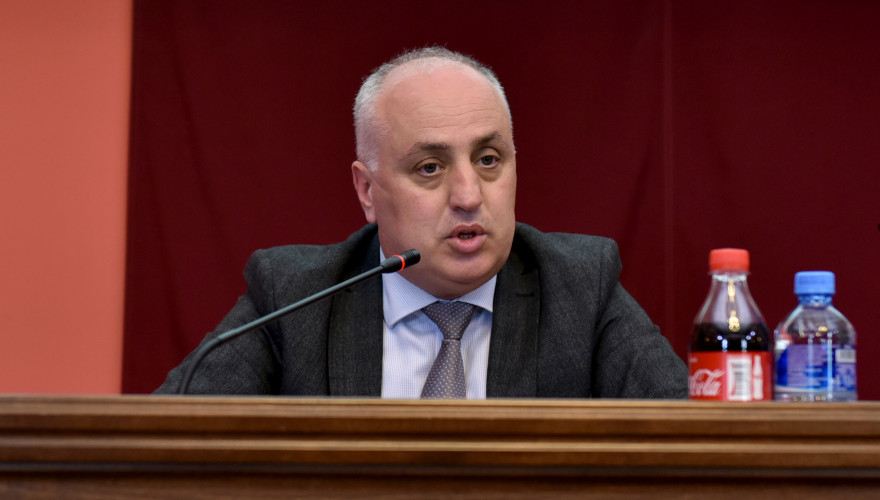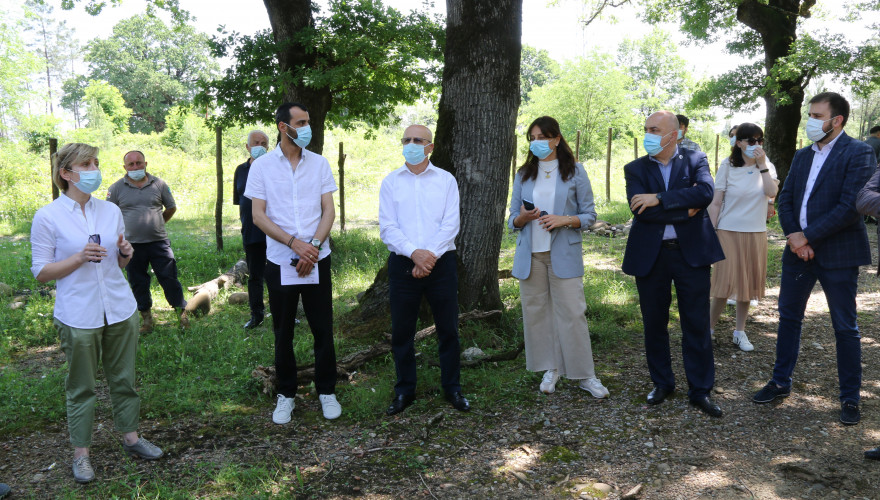The Health Care and Social Issues Committee hearing the Report by the Social Aid Agency

At the sitting, presided by the Chair, Dimitri Khundadze, the Health Care and Social Issues Committee heard the report by the Social Aid Agency, introduced by the Deputy Health Minister, Tamila Barkalaia in the form of a presentation.
It reflected all system changes and the progress in the social protection system and the social and employment policy. The social aid system budget has been four times increased within 2010-2020, which means that the respective programs and accessibility to the social aid are improved.
There still are many questions about social protection, as the system is not complete and provides gaps. Though, the progress clarifies that the system is getting improved year over year by the increased financial assignments.
The reporter introduced the social transfer distribution and funded social transfers for 2020-2021.
According to her, the social protection budget for 2021 constitutes 3 779 900 000 GEL and envisages:
- 2 600 000 000- 68,7 % for pension provision;
- 816 000 000- 21,5% - for social aid to target groups;
- 40 000 000-1% - for social rehabilitation and child care;
- 66 300 000-1,75% - social preferences for highlands;
- 7 600 000-0,2% - state care and aid for the victims of trafficking;
- 250 000 000-6,6% - for the social aid to the population affected by the pandemic-related socio-economic crisis.
The reporter overviewed the outcomes of Law on Pensions – the indexation method launched on January 1, 2021, envisaging the annual revision of the pensions.
She touched upon the target social aid program launched in 2015 envisaging the reforms and poverty eradication. It uses the methodology – indirect, statistic method for assessment of the welfare of the economies – PMT; the norms have been established for the indices (index impact level), each index has the meaning of certain capacity according to its impact on a family. The indices are verified in an automated manner by using various databases (including the incomes, real estate, vehicles, travel etc.), as well as the index of need (providing various needs: persons with disabilities, children with disabilities, lone pensioners, single parents etc.). The determination of the index is ensured without: subjective estimation of the Social Agency, domestic items (fridge, washing machine, stove etc.). The methodology considers the needs of children.
The reporter stressed the changes to the social aid program administration and informed MPs about the reforms – revision of the methods and administration scheme of assessment of the socio-economic state of the economies to increase the targets of the program; reduction of the living allowance establishment terms and ensure immediate response to the needs; full revision of the “index of need” to ensure higher flexibility of the system.
The Committee heard about the medical model of establishment of the disabilities and institutional changes to the social care system. MPs expressed their positions and recommendations.
“The report was very interesting, revealing that it requires in-depth analysis. It is entailed also by the pandemic and our forced interventions shall be reformed to achieve the effect and prevent the risk for the vulnerable groups of the population. The Committee has been fortified, holds the higher resources for effective activity and we will be gladly engaged in this process. Naturally, the gaps will remain as it is not a program to be improved to 100% specification, it is impossible. Thus, we have much to do to mitigate the needs of the population”, - D. Khundadze stated.





